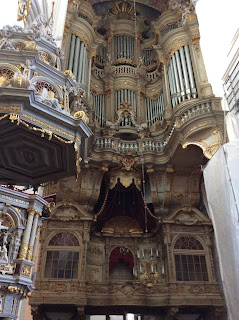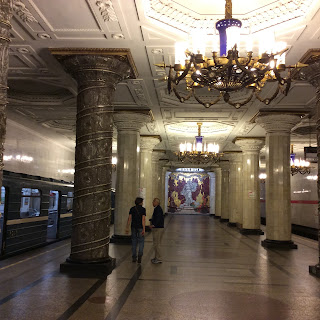Samba dancers in brightly colored costumes, big smiles on their faces as
they swirl to the music; a large float bearing two red and yellow papagayo figures and curvaceous dancers scantily clad
in sequined attire; the entire center of the stadium arena filled with people dancing in flashes
of sweeping colored lights. Soon the Olympic athletes join the performers in
one big happy, mad party. My husband is somewhere in that crowd. Later he tells
me he made a new acquaintance there, Mustafa, a tall Sudanese man, dressed in
traditional garments.
The gaiety and euphoria of the
closing event of the Olympic Games in Rio are contagious. In front of my
television I smile at the antics of the athletes and sway to the rhythm.
Swelling euphoria fills me at the sight of thousands of people of many races
and nationalities joined together in brotherhood. This is an example of what
humanity is capable of.
But then I recall the
photo of the five-year-old Syrian boy, Omran, covered in blood and I know that
men are also capable of terrible violence, hate and destruction. That young boy
and the scenes of destruction in Aleppo and the massive crowded refugee camps
trigger compassion. Then I feel anger – anger at the leaders (you know who you
are) who allow this to happen, not only allow,
but order the bombings and the killing, who believe only they are in the right, who are blinded
by intolerance for those who are different.
I want to put my arms
around Omron, comfort him and clean his face of blood. But, of course, I can’t.
But I can write, pointing out not only the violence and tragedy, which we see
live and direct on television newscasts, but also the alternatives.
Hey, World, look at the Olympics.
Look at what is possible with perseverance, will power and a vision.
Feel the joy. The possibilities. The hope.
Then take the next step. Act.











